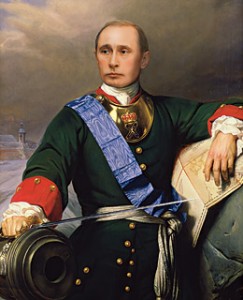Where wars DO come from:
“It is not civilizations that promote clashes. They occur when old-fashioned leaders look for old-fashioned ways to solve problems by rousing their people to armed confrontation.” –Kenichi Ohmae, The End Of The Nation State, (New York: The Free Press 1995), p. 11.
Why of course the people don’t want war. … That is understood. But, after all, it is the leaders of the country who determine the policy and it is always a simple matter to drag the people along –Head Nazi Hermann Goering
Mr. Bertie Felstead: “A German began singing All Through The Night, then more voices joined in and the British troops responded with Good King Wencelas… the next morning, all the soldiers were shouting to one another, “Hello Tommy, Hello Fritz” … The Germans started it, coming out of their trenches and walking over to us. Nobody decided for us – we just climbed over our parapet and went over to them, we thought nobody would shoot at us if we all mingled together… There wouldn’t have been a war if it had been left to the public. We didn’t want to fight but we thought we were defending England.” England’s Oldest Man Remembers The 1915 Christmas Truce
People do not make wars; governments do. –U.S. President Ronald Reagan
President George W. Bush and seven of his administration’s top officials… made at least 935 false statements in the two years following September 11, 2001, about the national security threat posed by Saddam Hussein’s Iraq. …an exhaustive examination of the record shows that the statements were part of an orchestrated campaign that …led the nation to war under decidedly false pretenses. –Charles Lewis and Mark Reading-Smith, False Pretenses: Iraq THE WAR CARD Orchestrated Deception on the Path to War, www.publicintegrity.org
Wars throughout history have been waged for conquest and plunder. …The feudal barons of the Middle Ages, the economic predecessors of the capitalists of our day, declared all wars. And their miserable serfs fought all the battles. The poor, ignorant serfs had been taught to revere their masters; to believe that when their masters declared war upon one another, it was their patriotic duty to fall upon one another and to cut one another’s throats for the profit and glory of the lords and barons who held them in contempt. And that is war in a nutshell. The master class has always declared the wars; the subject class has always fought the battles. The master class has had all to gain and nothing to lose, while the subject class has had nothing to gain and all to lose–especially their lives. …the working class who freely shed their blood and furnish the corpses, have never yet had a voice in either declaring war or making peace. It is the ruling class that invariably does both. They alone declare war and they alone make peace. Yours not to reason why; Yours but to do and die. That is their motto … The Anti-war Speech That Earned Eugene Debs 10 Years in Prison, Socialist Party convention in Canton, Ohio, 16 June 1918
By contrast, where wars DON’T come from:
…we preferred hunting to a life of idleness on our reservations. At times we did not get enough to eat and we were not allowed to hunt. All we wanted was peace and to be left alone. Soldiers came and destroyed our villages. Then Long Hair (Custer) came…They say we massacred him, but he would have done the same to us. Our first impulse was to escape but we were so hemmed in we had to fight. – Crazy Horse/Tashunkewitko
The Aztec strategy of war was based on the capture of prisoners by individual warriors, not on working as a group to kill the enemy in battle. By the time the Aztecs came to recognize what warfare meant in European terms, it was too late. – Aztec
New England’s first Indian war, the Pequot War of 1636-37, provides a case study of the intensified warfare Europeans brought to America. Allied with the Narragansetts, traditional enemies of the Pequots, the colonists attacked at dawn. … The slaughter shocked the Narragansetts, who had wanted merely to subjugate the Pequots, not exterminate them. The Narragansetts reproached the English for their style of warfare, crying, “It is naught, it is naught, because it is too furious, and slays too many men.” In turn, Capt. John Underhill scoffed, saying that the Narragansett style of fighting was “more for pastime, than to conquer and subdue enemies.” Underhill’s analysis of the role of warfare in Narragansett society was correct, and might accurately be applied to other tribes as well. Through the centuries, whites frequently accused their Native allies of not fighting hard enough. -James W. Loewen, LIES MY TEACHER TOLD ME, (New York, NY: Touchstone 1996), p. 118





